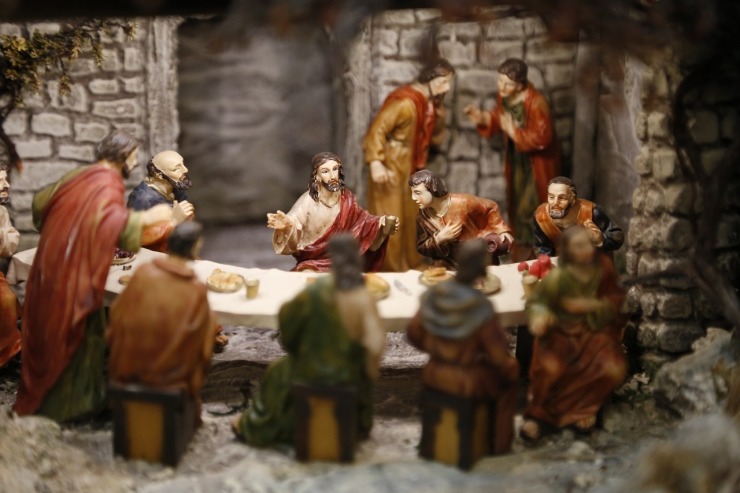
Thomas the Apostle gets a bad press. He's been known down the centuries as 'Doubting Thomas' because he wanted to see proof that Jesus had risen from the grave.
But I wonder if we need to re-evaluate Thomas and take a look across John's gospel at his many good points. It's maybe a minority view, but in a post-truth world, there's lots about Thomas that can inspire our faith.
1. Thomas spoke his mind. In John 11, after Jesus had heard that his friend Lazarus had died, Jesus told his disciples that they were heading to Judea. Some of them pushed back on the idea, pointing out that the people there had tried to stone him. But Jesus declares that he is going to Lazarus, "to wake him" from death.
It's Thomas who responds, 'Let us also go, that we may die with him.' Thomas puts into words what many of the apostles may have been thinking. He shows his commitment and loyalty – but also prophetically sets out what the risks might be.
2. Thomas asked questions. In John 14, Jesus is comforting his disciples, telling them "If I go and prepare a place for you, I will come back and take you to be with me that you also may be where I am. You know the way to the place where I am going."
It's Thomas that asks the question that maybe others are thinking. He asks "Lord, we don't know where you are going, so how can we know the way?"
It's in direct response to that question that Jesus makes one of the most important declarations in any of the gospels. He says, "I am the way and the truth and the life. No one comes to the Father except through me. If you really know me, you will know my Father as well. From now on, you do know him and have seen him."
Questions are good – popular 'seeker' programmes like the Alpha Course are based on giving people the chance to ask questions. Much of Jesus's teaching was formed around asking questions, and responding to the challenges put to him.
3. Thomas resisted peer pressure. When, in John 20, the other disciples tell him "We have seen the Lord," it would have been easy for Thomas simply to have rejoiced with them. We do not know why Thomas was not with the others when the Risen Lord appeared, but many people's natural response would have been to have taken their word on trust. Thomas did not.
In today's world, Christians are often called upon to conform with the world around. Or to take on trust what others are saying – even church leaders. Thomas was prepared to make a stand against potential 'group-think' and seek the evidence for himself.
4. Thomas expressed his doubt. He not only refused to take the word of the others, Thomas spoke out his scepticism and looked for proof. He famously declared, "Unless I see the nail marks in his hands and put my finger where the nails were, and put my hand into his side, I will not believe."
Eminent New Testament theologian Paula Gooder has said, "I think people who struggle with faith can know that they're not being told off for doubting or not believing, but can be reassured that Jesus understands the complexity of believing and will show us things when we need them."
5. Thomas saw and believed. Many works of art show Thomas placing his finger into Jesus's side – but the gospel account makes no mention of this. Jesus says to Thomas, "Because you have seen me, you have believed," with no indication that Thomas had stretched out his hand.
In response to seeing Jesus, Thomas can declare "My Lord and my God!" It's a fulsome declaration that the other disciples do not make.
There is an implied criticism from Jesus for Thomas, with his words "Blessed are those who have not seen and yet have believed." But I see this as Jesus and the gospel writer addressing generations of Christians who will follow in the footsteps of the first disciples.
The Apostles ate and drank with Christ. They spent years travelling with him and learning from him. They knew the sound of his voice, the warmth of his smile and the way he encouraged each of them. We know Jesus primarily through the Scriptures and the witness of the Holy Spirit.
Thomas stayed the course. He is with the rest of the disciples in Acts 1, as they gather together after Christ's Ascension to choose a successor to Judas. He is there when the Holy Spirit descends in power.
Christian tradition has Thomas travelling to India and making many converts there, and this may perhaps be true.
But what is authentic is that Thomas models a faith that engages with and speaks into our post-truth world, full of misinformation and fake news. Ultimately, he proclaims that Jesus Christ is Lord and God. An Apostle for our times.
Rev Peter Crumpler is a Church of England minister in St Albans, Herts, UK, and a former communications director with the CofE.
Republished from Christian Today UK.




